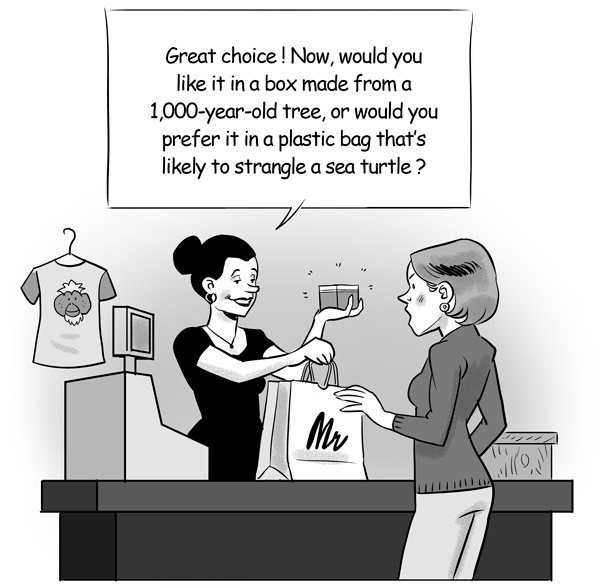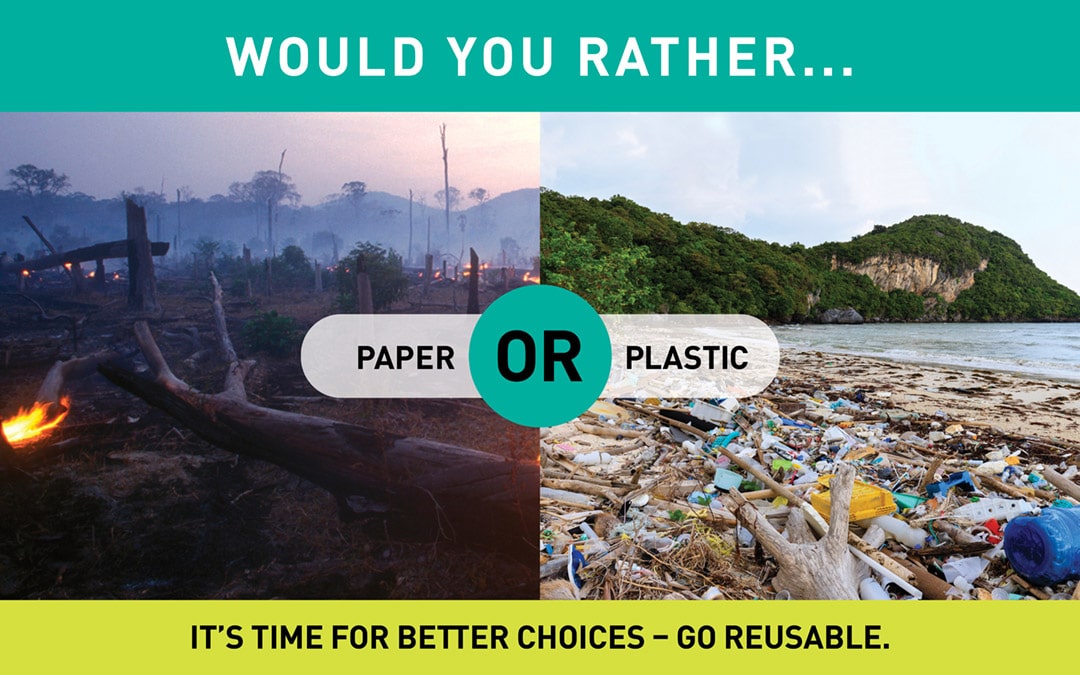But since then, as technology progressed we have developed an ability to produce low-cost products en masse. This, alongside a growing culture of disposability, has resulted in mountains of waste, devastated landscapes and a culture of ‘single-use’.
Today we use around 50% more natural resources than 30 years ago and produce a whopping 2 billion tonnes of waste each year. It may not be surprising that one of the main culprits is plastic. It litters our land and chokes our oceans, and can be found in quite literally every corner (and stomach) on this planet, even on Antarctica. Plastic is produced using fossil fuels and is responsible for 5% of greenhouse gas emissions globally. Its toxic nature causes harm to millions of living creatures, including humans. We’ve all seen the devastating images of entangled turtles and suffocated seabirds.
Whilst the plastics industry would like consumers to think that many plastic products are recyclable, less than 10% of all the plastics produced since the 1950s has actually been recycled with the rest incinerated, dumped in landfills, or left to pollute the environment.

There is now a growing awareness of the long-term destructive impacts of plastic and our need to “turn off the tap” on the production of plastic. As a result, several corporations, and even governments, have announced commitments to switch to alternatives, mainly paper.
What’s less well known is that each year, three billion trees are cut down to make paper packaging, roughly an area the size of the United Kingdom. Many of these trees come from the world’s most endangered forests, which are home to countless threatened and endangered species, as well as Indigenous communities that depend on forests for their livelihood. These forests are important carbon storehouses, and vibrant, unique eco-systems that once displaced can never be replaced.
We are currently in the midst of a climate and biodiversity crisis that calls for the protection and restoration of forest landscapes. To do so, it’s imperative that we limit the number of trees that are used to make single use products and packaging.
It’s perhaps slightly ironic that the plastic bag was invented (in 1959 by Swedish engineer, Sten Gustaf Thulin) as an alternative to paper bags, which were considered bad for the environment as they resulted in forests being chopped down.
It’s clear that neither plastic nor paper is an environmentally safe option. We shouldn’t have to choose between paper or plastic at all, especially when we have readily available alternatives. It’s time to halt our reliance on single-use products altogether.
This is why 188 organizations have come together to call for an end to single-use, throwaway products, asking for transformational change to our production, consumption and end-of-use systems to enable a truly circular economy.
The Break Free From Plastic movement, in partnership with Canopy and the Dogwood Alliance, is calling on governments, businesses, investors, non-profits, and civil society to reject single-use products in favour of reusable, recyclable, and compostable ones made with the lowest possible environmental and social footprint.
Many of the solutions already exist… Reuse and refill systems, products made from 100% recycled materials that can be fed back into a circular system, alternative materials to fossil fuels and tree-based feedstocks, and smart re-design to save on overall material use.
Most importantly, we must work collaboratively to enable transformative action on single-use items. To do so will reap far-reaching benefits for both ourselves and our natural world.
To see a list of actions that can be taken now to support wide-scale systems change on single-use, see below.
There are actions that each of us can take now to support wide-scale systems change.
Individual consumers can:
• Refuse unnecessary single-use products, both through purchasing decisions, giving feedback to brands when they overpackage goods.
• Use social media and other communication channels to voice concern and raise awareness about the issues and solutions with single-use.
Businesses can:
• Develop a robust packaging policy/strategy, using a Pack4Good template policy
• Smart product design to reduce the volume of fibre needed and to minimize or eliminate single-use packaging.
• Prioritize the scale-up of Next-Generation Solutions including early adoption and investment.
• Engage supply chains to halt impacts on critical forest landscapes and increase sustainable sourcing of materials.
Governments can:
• Introduce policies and dedicate funding to support conservation of forest ecosystems and a rapid transition to a circular economy.
• Support businesses and citizens in adapting to change through education and provision of information.
Non-governmental organizations (NGOs) can:
• Campaign for change
• Advocate and support government and corporate policies
• Promote relevant scientific evidence
• Research and profile early adopters and innovators
• Help to channel finance to support scale-up of solutions
• Avoid advocating for false solutions




